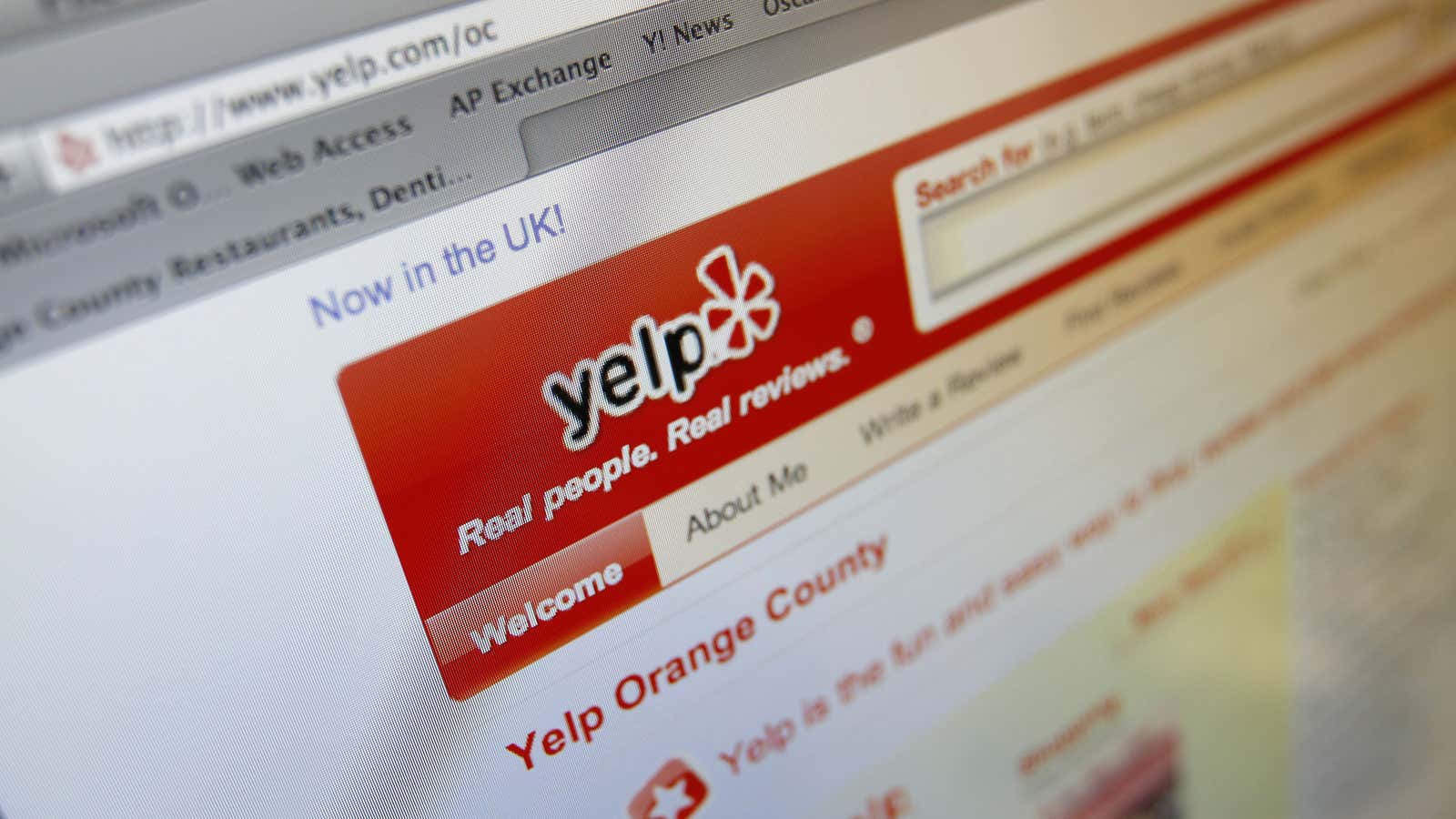“Hard bargaining.”
That’s how Judge Marsha Berzon of the Ninth US Circuit Court of Appeals in San Francisco described the user reviews service Yelp’s alleged manipulation of its ratings to charge advertisers higher fees. “As Yelp has the right to charge for legitimate advertising services, the (alleged) threat of economic harm … is, at most, hard bargaining,” said Berzon in a 3-0 ruling that cleared Yelp of wrongdoing in a class-action suit brought by small business owners. The owners had claimed that Yelp “created negative reviews of their businesses and manipulated review and ratings content to induce them to purchase advertising,” according to the case brief.
Users took to social media to express their rage at the court’s decision and to what they saw as shady corporate behavior, at best. Yelp, for its part, categorically denied the charges that it manipulated its reviews or ratings.
“We are pleased the appeals court upheld our earlier victory in this case,” Vince Sollitto, a Yelp spokesman, told Quartz. “Millions of consumers rely on Yelp every day because they trust our content, which is why businesses can’t pay to remove or alter their reviews.”
Judge Berzon said the plaintiffs had failed to make the case that Yelp had exhorted them. And she went a step further in saying that even if the allegations were true, they would not amount to extortion: ”A plaintiff would have to demonstrate either he had a pre-existing right to be free from the threatened harm, or that the defendant had no right to seek payment for the service offered.”
It’s that part of the ruling that has led to so much hand-wringing online, the New Yorker notes:
The judges’ decision seems, at first, to set a dangerous precedent. On the San Francisco blog SFist, Jay Barmann wrote, of the Yelp decision, “It certainly makes one trust the integrity of the site that much less.” If Web sites that publish user-generated reviews are legally free to manipulate that content, doesn’t that set us up for a future in which none of what we read on these sites—Yelp reviews of restaurants, Amazon product ratings—will be reliable? If we keep choosing dry cleaners based on positive Yelp reviews, are our clothes going to come back in shreds? Worse yet, could a ruling like this mean that Google could organize search results differently to boost advertisers, or that Facebook could do the same with your news feed? These are fair questions, but the answer is probably no.
The reason, business editor Vauhini Vara argues, is that Judge Berzon’s ruling only looked narrowly at the specific charges brought by the plaintiffs, which were governed by laws meant to protect businesses: “We emphasize that we are not holding that no cause of action exists that would cover conduct such as that alleged, if adequately pled,” Berzon writes. Vara points out that the Federal Trade Commission also looks out for consumers, and has taken a dim view (pdf) of deceptiveness in native advertising interspersed with or prioritizing peer-generated restaurant recommendations (a similar practice to what was alleged here, though not entirely the same).
In any case, the court’s decision may not be the final word. It remains to be seen whether Yelp’s loyal consumer base will keep coming back, or whether even the suggestion that Yelp’s ratings are manipulated have hurt the brand’s credibility.
